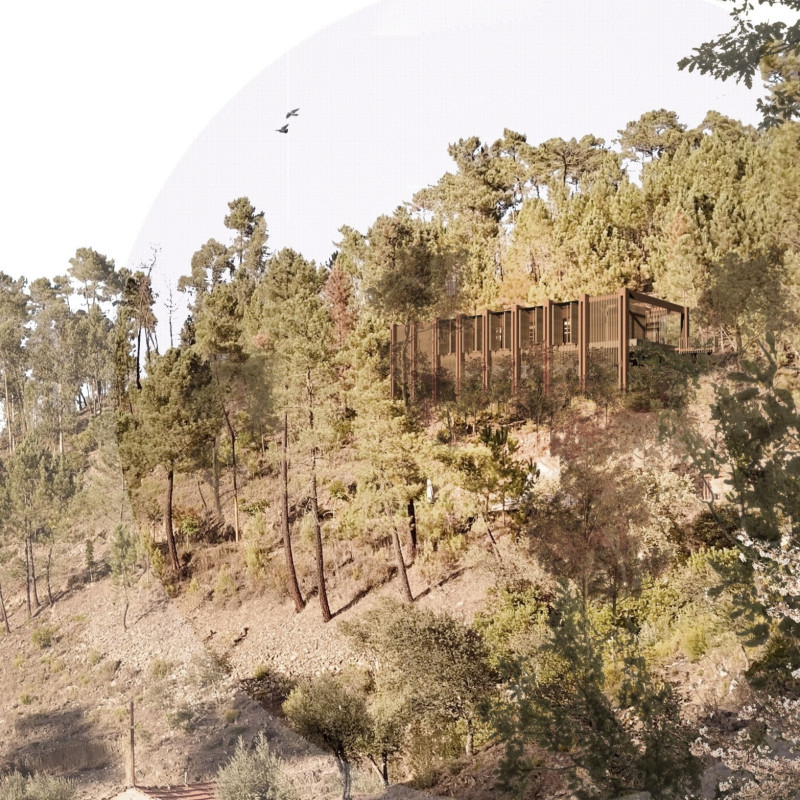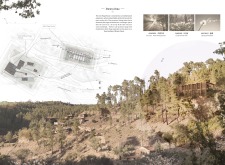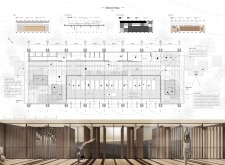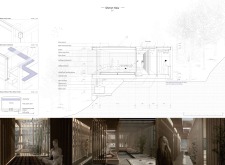5 key facts about this project
The primary function of this project is to serve as a wellness retreat that offers spaces for mindfulness and yoga practice. Its layout includes a main yoga house, zen gardens, and support facilities, designed to enhance relaxation and promote mental well-being. Each element is deliberately positioned to maximize the sensory experiences associated with forest engagement, emphasizing sight, sound, and touch.
Innovative design approaches characterize the "Shinrin-Yoku" project, setting it apart from other similar initiatives. The integration of natural light is a key feature, achieved through extensive use of glazed surfaces that enhance visual continuity with the landscape. This design decision not only illuminates interior spaces but also invites the outdoors in, creating a seamless transition between built and natural environments.
Additionally, the project employs sustainable building practices, including the installation of solar panels and rainwater collection systems. These features reduce the retreat's environmental impact while promoting eco-conscious living. The use of materials, notably wood for warmth and concrete for structural durability, reflects a commitment to authenticity and a connection to the natural context.
Architectural sections and plans reveal the thoughtful spatial organization of the retreat, with the yoga house positioned for optimal views of the surrounding forest. The incorporation of zen gardens near the yoga space serves as an extension of the retreat experience, enabling users to engage with nature directly. Attention to natural ventilation further enhances the retreat's comfort and energy efficiency.
In summary, the "Shinrin-Yoku" project exemplifies an architectural approach that respects and embraces its environment while providing spaces dedicated to wellness. For those interested in understanding the technical aspects of this project further, exploring the architectural plans, sections, and various design elements will yield deeper insights into the innovative strategies employed throughout the design process.


























